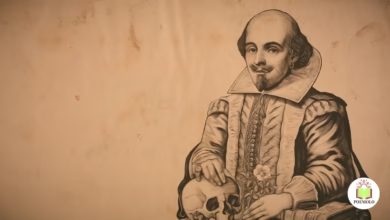Langston Hughes Poems Luck Lyrics, one of the most celebrated and famous poets of the 20th century, is known for his profound exploration of the Black experience in America.
A prominent figure in the Harlem Renaissance, Hughes’ work often reflects the struggles, joys, and dreams of African Americans, intertwining his personal experiences with larger societal themes.
One of his lesser-known but equally significant works is the poem Luck, in which Hughes touches on the concept of chance, fate, and the underlying forces that shape individual lives.
In this article, I will delve into an in-depth analysis of Langston Hughes’ Luck, exploring the poem’s lyrics, themes, literary devices, symbolism, and its broader significance in the context of Hughes’ career and the world around him.
Who Was Langston Hughes?

Before diving into the specifics of Luck, it is important to understand the life and background of Langston Hughes. Born in 1902 in Joplin, Missouri, Langston Hughes grew up during a time when African Americans faced systemic racism, favoritism, and harsh economic conditions.
His early life was marked by frequent relocations as he lived with various relatives, but despite these challenges, Hughes developed a love for writing at a young age.
In his lifetime, Hughes became one of the most celebrated figures in American literature. He is often regarded as the poet laureate of the Harlem Renaissance, a cultural movement that emerged in the 1920s in the Harlem neighborhood of New York City.
The Harlem Renaissance was a period of profound cultural rebirth, where Black artists, musicians, and writers came together to assert their identities, celebrate Black culture, and challenge the racial injustices of the time.
Hughes was known for his ability to capture the essence of the Black experience, incorporating elements of jazz, blues, and gospel music into his poetry, thus making it more accessible and relatable to his audience.
Hughes’ works span a wide range of themes, from racial equality and civil rights to love, loss, and personal introspection. He also wrote plays, novels, short stories, and essays, contributing significantly to American culture.
His poetry, however, remains his most enduring legacy, with works such as The Negro Speaks of Rivers, I, Too, and the Weary Blues becoming part of the American literary canon.
The Poem Luck by Langston Hughes
Langston Hughes’ poem Luck is a reflection on the idea of chance and the role it plays in the lives of individuals. The poem, though short, explores complex themes with a simplicity that has become characteristic of Hughes’ work. Luck addresses the notion of “luck” as something external, something over which individuals have no control, and yet it is often used as a way to explain success or failure in life.
Luck Poem Lyrics
by Langston Hughes
I looked at my luck.
It was gone.
My luck was gone.
I tried and tried,
But luck would not come.
I tried and tried,
But luck would not come.
Now I see
My luck is gone.
| Poem | Analysis |
| Luck | Langston Hughes’ poem “Luck” explores the fleeting and elusive nature of luck in human life. The poem focuses on an individual’s frustration with the unpredictability of luck and its inability to be controlled or relied upon. |
| I looked at my luck | The speaker begins by reflecting on their current situation, realizing that their luck is no longer present. This opening line establishes the theme of luck as something external and uncontrollable. |
| It was gone. | The speaker acknowledges the absence of luck, emphasizing how it has disappeared. This sudden loss of luck creates a sense of void or emptiness. |
| My luck was gone. | The repetition of this line reinforces the loss, making the speaker’s situation feel even more concrete. The idea of losing “luck” symbolizes the loss of opportunity or favorable circumstances. |
| I tried and tried | The speaker conveys persistence in their efforts to turn things around, illustrating a desire to improve their situation, but their attempts are in vain. This repetition suggests frustration and struggle. |
| But luck would not come. | Despite the speaker’s best efforts, luck does not return. This line reveals the central message that luck cannot be summoned or controlled, emphasizing the randomness of life. |
| I tried and tried | Again, repetition of “tried and tried” emphasizes the ongoing, futile efforts of the speaker. The effort is not wasted but rather highlights the absence of external forces (like luck) that could assist. |
| But luck would not come. | The speaker once more faces the harsh reality that luck does not respond to persistence or desire. The poem demonstrates that luck is a mysterious and uncontrollable factor. |
| Now I see | This line marks the speaker’s realization. They are coming to terms with the fact that luck cannot be relied upon. The realization can be interpreted as an awakening to the futility of waiting for change to come from external forces. |
| My luck is gone. | The poem ends with the speaker’s final acknowledgment of the absence of luck, bringing closure to the internal struggle and reinforcing the central theme: luck is a transient and unreliable force. |
Interpretation of the Poem
At its core, Luck is a simple yet poignant exploration of the idea that luck is not something we can rely on or control. The speaker begins by reflecting on their “luck,” only to realize that it has vanished, leaving them in a state of frustration and confusion.
Through the repetition of the phrases “I tried and tried” and “but luck would not come,” the poem conveys a sense of futility. The speaker’s efforts are met with disappointment, suggesting that no matter how hard they try, luck remains elusive.
The repetition also mirrors the idea of persistence, a central theme in Hughes’ work. It suggests that despite continual effort, there are forces in life beyond our control, and luck is one of them.
This notion is especially poignant when viewed in the context of Hughes’ broader themes of social and racial inequality, where people, particularly African Americans, often found themselves struggling against forces beyond their control, whether societal prejudice or systemic barriers.
Themes in Luck
Several key themes emerge from Langston Hughes’ poem Luck. The primary themes include the illusion of luck, hard work versus chance, and the broader implications of luck in relation to societal forces. Let’s explore these themes in greater detail.
The Illusion of Luck
One of the most prominent themes in Luck is the illusion of luck. Hughes presents the idea that luck is something intangible and unpredictable, which people often blame for their success or failure.
The speaker in the poem initially believes in the existence of luck, but upon realizing it is gone, they must face the harsh reality that luck is not a reliable force. The poem critiques the notion that luck can be controlled or counted on.
This theme can be interpreted as a commentary on how people often attribute their successes to luck, ignoring the many other factors at play. Hughes may be suggesting that luck is a false explanation for success and that hard work, perseverance, and resilience are more important than waiting for good fortune to come.
In the context of African American life during Hughes’ time, luck could also symbolize the elusive nature of equality and opportunity, as Black people were often denied access to the same resources and privileges that others enjoyed.
Hard Work vs. Luck
Hughes’ poem also touches on the idea of hard work versus luck. In the poem, the speaker’s repeated attempts to attract luck, “I tried and tried,” highlight the futility of relying solely on luck to achieve success.
The absence of any mention of effort or determination in the poem implies that the speaker is expecting something external—luck—to dictate their fate, instead of focusing on the internal effort required to achieve their goals.
This theme is consistent with Hughes’ broader philosophical stance, which emphasized the importance of persistence and hard work in overcoming challenges. By contrasting luck with effort, Hughes underscores the idea that while luck may play a role in one’s life, it is often far less significant than personal determination. In other words, waiting for luck to change is futile; one must act and persevere to create their own opportunities.
Societal Forces and Systemic Inequality
On a deeper level, the poem Luck can be seen as an allegory for the broader societal forces that shape an individual’s success or failure. In Hughes’ time, African Americans were subject to systemic inequality, racial discrimination, and a lack of access to opportunities.
For many Black individuals, “luck” could be seen as something that they were denied from births a metaphor for the barriers that kept them from achieving the same level of success as their white counterparts.
The realization that “luck is gone” can be viewed as recognition of the social and economic systems that prevent many from achieving their goals. Hughes’ work, including Luck, often draws attention to the harsh realities faced by marginalized communities and emphasizes the need for change.
The poem can be interpreted as a critique of the American social structure that favored certain groups over others, making “luck” something that was often out of reach for those who were already disadvantaged.
Literary Devices in Luck

Langston Hughes’ poetry is known for its musicality, simplicity, and accessibility. In Luck, he uses several literary devices that enhance the poem’s emotional impact and highlight its themes. Let’s take a closer look at some of the literary techniques Hughes employs in this poem.
Repetition
The most striking literary device in Luck is repetition. The lines “I tried and tried / But luck would not come” are repeated throughout the poem, which creates a sense of rhythmic despair.
This repetition mimics the feeling of being stuck in an endless cycle of effort with no results, evoking a sense of frustration in the reader. It also serves to emphasize the central theme of the poem—that luck is something beyond our control, something that cannot be forced or predicted.
Personification
Hughes personifies “luck” by presenting it as something that can “go” or “leave.” By treating luck as an entity that can leave the speaker, Hughes gives it human characteristics, thus making the idea of luck more tangible and real. This personification heightens the emotional weight of the poem, as the speaker feels as though they have lost something precious and irreplaceable.
Alliteration
Another literary device that Hughes uses is alliteration. The repetition of the “t” sound in “tried and tried” creates a rhythmic flow that mirrors the speaker’s persistent efforts. The repetition of the “t” sound emphasizes the relentlessness of the speaker’s attempts to bring luck into their life, underscoring the central message of futility.
Simplicity of Language
One of the hallmarks of Hughes’ style is his use of simple, straightforward language that allows readers to engage with the poem on a personal level. The uncomplicated structure and language in Luck make it accessible to a wide audience while allowing the poem’s deeper meanings to resonate.
Hughes’ ability to convey profound insights using simple words is one of the reasons why his poetry remains so powerful and relevant today.
Symbolism in Luck
In addition to the literary devices discussed, Luck also employs symbolism to enhance its themes. The most obvious symbol in the poem is “luck” itself. As a symbol, luck represents the uncontrollable forces that shape people’s lives—forces like chance, fate, privilege, and opportunity.
In the context of Hughes‘ life and work, luck can also symbolize the systemic forces that affect individuals based on their race or socioeconomic status.
For African Americans, “luck” was often a fleeting or absent entity, as they were subjected to social, political, and economic obstacles that prevented them from achieving the same successes as others. In this sense, luck becomes a metaphor for the inequities in society.
Langston Hughes and the Harlem Renaissance
Langston Hughes was an integral figure in the Harlem Renaissance, a cultural movement in the 1920s that sought to challenge the racist stereotypes of Black Americans while celebrating Black culture and heritage. The Harlem Renaissance was a period of immense creativity, where artists, musicians, and writers began to assert their identity and tell their own stories.
Hughes’ work from this period reflected the struggles and aspirations of Black Americans. He used his poetry to speak to the shared experiences of African Americans, and poems like Luck were an attempt to both reflect and critique the socio-political realities of the time.
While the Harlem Renaissance was a time of cultural flourishing, it was also a time of intense racial tension and inequality. Hughes’ poetry, including Luck, addresses these realities by highlighting the unpredictable nature of life and the forces of luck and chance that shape an individual’s fate.
Why Luck Still Resonates Today
Although Luck was written decades ago, its themes remain strikingly relevant in today’s world. The idea that success is often attributed to “luck” resonates in a society that continues to grapple with inequality and privilege.
Whether discussing the disparities between the wealthy and the poor or examining racial inequalities, Hughes’ poem invites readers to consider the forces that determine who gets ahead in life and who does not.
Furthermore, Luck serves as a reminder that success is often the result of factors beyond our control, whether it’s economic background, race, or gender. In a world that increasingly recognizes systemic inequality; the poem speaks to the ongoing struggles faced by marginalized communities.
Hughes’ insight into the nature of chance and luck continues to echo in the lives of those who still find themselves fighting against forces beyond their control.
Conclusion
Langston Hughes’ Luck is a thought-provoking and powerful poem that explores the unpredictability of life, the illusion of luck, and the forces that shape human existence. Through his use of repetition, personification, and simple yet poignant language, Hughes invites readers to reflect on the nature of success and the role that luck, chance, and hard work play in shaping our lives.
The poem’s exploration of societal forces and systemic inequality adds layers of depth, making it a timeless reflection on the complexities of the human experience.
In Luck, Hughes challenges readers to reconsider the concept of luck and its impact on their lives, urging them to recognize the importance of persistence and effort in achieving success. By doing so, Hughes continues to speak to the struggles and aspirations of those who are often overlooked or denied opportunities based on circumstances beyond their control.
His legacy as a poet who captured the essence of the Black experience in America remains as relevant today as it was during the Harlem Renaissance.





